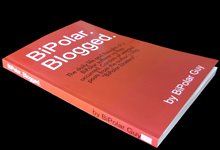Happiness is...
Seriously this time (warning: when BPG gets serious it usually means he is going to launch into a long, complex philosophical rant).
Yet again: Want to know what something means? Go first to the dictionary. One step better go to a word roots dictionary. Etymology (yummy).
HAPpiness it turns out, shares roots with:
perHAPs,
HAPpen,
HAP-Hazard.
What can this tell us?
perHAPs it can shed some light...
perHAPs
Perhaps suggests to me, a kind of "leaving possibilities open". Like the opposite of closure. Something loose instead of rigid. Something ISH. An openess to letting things HAPpen (wink, wink, nudge, nudge). Leave your front door open with all of its possibilities, never lock the unknown out.
(As an aside a weird study analysing all that was written by the philosopher Nietzsche (BPGs favourite philosopher btw) revealed that the one word which he used most was.... you've got it...."perhaps")
HAPpen
"Let it Be", Johnny Lennon said, and so did the Buddha. In other words: "Let things happen". Don't be a control freak, don't try get a tight grip on the future, don't lock things into houses. Just LET GO (Buddha again). Keep the "perhaps" (nudge, nudge, wink, wink) alive.
HAP- hazard
Once again, let things land as they will. So what if they don't fit into a pre-defined plan. "Happy Go Lucky" is the conventional saying.
CARELESS you say??
Nah, I say CAREFREE.
HAP, HAP, Hooray
PS: Raine and bp_hockey chick - you guys are truly lucky you don't hanker after youth. Maybe it's a male thing. Come to think of it I've never heard of a woman having a Mid-Life Crisis.




A UK TV advert never leaves my mind when it comes to happiness.
ReplyDelete"Happiness is a cigar called Hamlet". This statement followed some unfortunate souls latest calamity. Unfortunately I don't smoke.
Oh a note to Mrs BPG in regards to golf being boring if it wasn't for the bunkers. It is often said that golf is a good walk ruined!
My favourite HAP words? Happenstance and mayhaps. By the way, did you realise that "somewhen" was still current in English in the thirties? Both H.G. Wells and Vladimir Nabokov used it in books that I happened to read recently. Nabokov's novel was translated from Russian, though. The Gift, the last one he wrote in his native language. Well worth the read, especially if you like butterflies, poetry, or Russian literature.
ReplyDelete